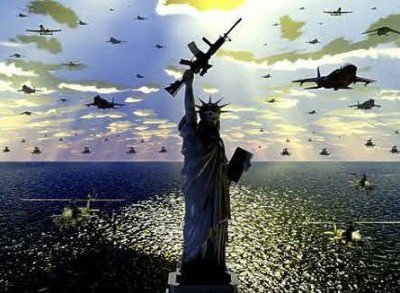
“It has been approximately 3 1/2 years since the global coalition began its effort to defeat ISIS. At the time we started our efforts, ISIS-Daesh was thriving. Today, ISIS-Daesh is failed,” said U.S. Secretary of State Rex Tillerson. But he warned that the end of major military operations against the organization “does not mean that we have achieved the enduring defeat of ISIS.” His warning goes out to all the nations allied against terrorism. These countries met in Kuwait to discuss the reconstruction of Iraq, the destruction of whose basic infrastructure and societal fabric the U.S. has participated in throughout its occupation from 2003 until today.
From World War II in the 1940s to the Korean War in the 1950s, to the latest wars in Iraq and the Levant throughout Afghanistan, American victories are always incomplete. Washington and the Allies defeated Nazi Germany and the Axis Powers, but the victory was not complete. To end the war, the Soviet Union became a partner in defeating Hitler, an enemy that had to be surrounded and whose ambitions in Europe had to be addressed. But then the Cold War lasted until the 1990s, with its arms race and proxy wars in other countries.
After the breakup of the Soviet Union, reconciliation was replaced with the Communist enemy, and victory was not complete. Washington sought to encircle Russia together with independent countries in Central Asia and Eastern Europe, which were then introduced into the European Union and NATO. America defeated Moscow in Afghanistan in the 1980s in cooperation with Islamic organizations, but the mission was not completed. Its soldiers are still fighting battles against yesterday’s allies.
The U.S. achieved a great victory in Korea and divided the country into North and South (between Kim and Kim) and followed Japan, which has become one of its most important allies in the Far East. But still, to this day, the U.S. beleaguers Pyongyang and threatens to annihilate and prevent the unification of the peninsula. The U.S. disrupted French colonialism in Vietnam, where it met a defeat that still shapes a historic decade for them. Now, the U.S. uses Taiwan as a basis to threaten China.
On May 1, 2003, a month after the invasion of Iraq, George W. Bush announced the end of military battle onboard the aircraft carrier USS Abraham Lincoln: “In the battle of Iraq, the United States and our allies have prevailed. And now our coalition is engaged in securing and reconstructing that country,” he said. The focus on reconstruction consisted of battles against al-Qaida and the Islamic State that continue today. Even Tillerson’s statement last week concluded that this organization has never been defeated, and that the efforts to thwart it must be synchronized with reconstruction.
As for Syria, where there are dozens of terrorist organizations, the interests of other nations and the complexity of alliances and deals is intertwined with the United States’ other calculations. These calculations begin as a response to Iranian and Russian influence and they don’t stop with the defeat of the Islamic State group and the organizations loyal to Damascus. In this geographical area, one finds the jewel in the crown, Israel, which concerns Washington in various Democratic and Republican agreements. The White House now has a president who does not differentiate between politics and trade, and whose vice president represents Christian Zionism, with all its racism and immersion in the darkness of the Torah’s fables, and a strict religious belief like that of Abu Bakr al-Baghdadi.
American victories will not be completed, and their wars go on everywhere.

Leave a Reply
You must be logged in to post a comment.